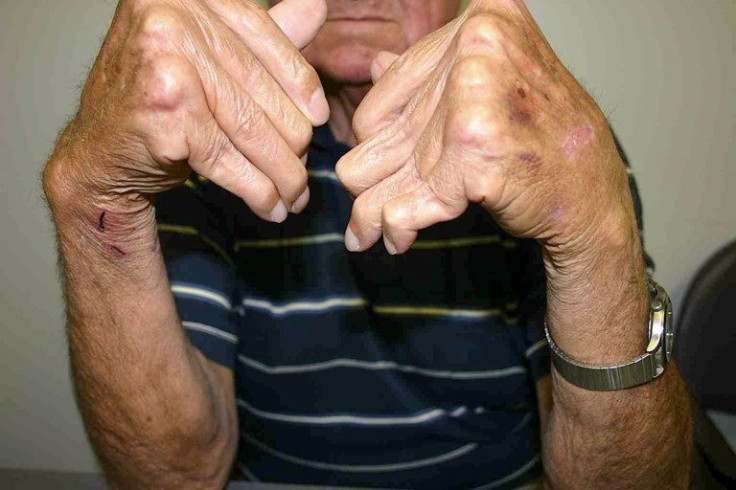World Trade Center Attack First Responders At Higher Risk For Rheumatoid Arthritis

Among the costs of bravery: kidney damage, post-traumatic stress disorder, respiratory illnesses, cancer. Now the autoimmune disorder rheumatoid arthritis (RA) is getting added to the list of conditions suffered by first responders to the Sept. 11 attacks on the World Trade Center. A study published in Arthritis & Rheumatology finds people who helped with rescue efforts face twice the risk for RA than the general public.
Most of the research into the physical effects of both immediate and long-term exposure to Ground Zero debris has confirmed the well-known damages of heavy smoke inhalation and psychological burden. But less well-known are the autoimmune effects, which have been known to crop up in times of heavy stress. Led by Dr. Mayris P. Webber, professor of clinical epidemiology and population health at Albert Einstein College of Medicine, a team of scientists decided to find out.
Sixteen thousand people made up the team’s study. Through their analysis of rheumatologist visits, they found RA was the most common autoimmune disease among patients, at 37 percent of the cases. For each added month a person worked at the site, RA risks increased by 13 percent.
As a way to rehabilitate and protect first responders, in 2011 President Obama signed into law the James Zadroga 9/11 Health and Compensation Act of 2010. It amended the existing Public Health Services Act to include the World Trade Center Health Program, which now offers medical services and counseling to first responders, cleanup workers, and volunteers who helped after the various Sept. 11 attacks. Unfortunately, RA isn’t one of the conditions covered by the WTC Health Program.
Resolving that issue could prove challenging, given the fact people may be genetically predisposed to RA. Dr. David Borenstein, clinical professor of medicine at George Washington University Medical Center, told Healthline recently that autoimmune diseases can emerge after spending time in hazardous environments. “A short exposure was not enough,” he said of the first responders’ exposure to Ground Zero. To Borenstein’s mind, something else had to have played a role.
RA mainly affects the joints in sufferers’ hands and feet. It develops into a painful swelling that can make everyday activities nearly impossible. Roughly 1.3 million people in the U.S. currently suffer from the disorder, with men more heavily affected, according to the American College of Rheumatology.
Given the newfound prevalence of RA, the study authors recommend the WTC Health Program expands its surveillance “for those with extended exposures as early detection can facilitate early treatment, which has been shown to minimize organ damage and improve quality of life.”
Source: Webber M, Moir W, Zeig-Owens R, et al. Nested Case-Control Study of Selected Systemic Autoimmune Diseases in World Trade Center Rescue/Recovery Workers. Arthritis & Rheumatology. 2015.
Published by Medicaldaily.com



























